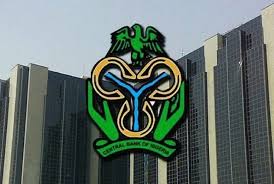The Civil Society Legislative Advocacy Centre (CISLAC) has strongly criticized the leadership of the Central Bank of Nigeria (CBN), led by Governor Yemi Cardoso, for engaging in what it describes as extravagant spending amidst the nation’s economic challenges.
In a statement, CISLAC’s Executive Director, Auwal Musa Rafsanjani, expressed deep concern over reports that Governor Cardoso and his four deputies spent over N10 billion on luxury armored vehicles, including six Lexus LX 600 models. The organization also highlighted allegations that Cardoso purchased approximately 20 new Toyota Camry cars at N85 million each for CBN management and board members, and that the leadership had significantly increased their annual housing allowances to nearly N1 billion, despite residing in official residences in Maitama, Abuja.
Rafsanjani condemned these expenditures, emphasizing that such actions are especially egregious given the rising inflation and widespread hardship in Nigeria. He urged the CBN leadership to take immediate steps to reduce the cost of governance and enhance accountability.
“We must hold ourselves accountable and take responsibility for the betterment of our nation,” Rafsanjani stated, advocating for the redirection of funds towards infrastructure and essential services. He added that public service should reflect integrity and responsibility, not indulgence in luxury.
CISLAC criticized the ongoing use of public funds for luxury items, calling for legislative scrutiny of budget appropriations to eliminate wasteful spending and promote responsible governance. The organization reiterated that public service should be about honor and responsibility, not showcasing wealth or engaging in competitions of affluence.
“While CISLAC does not oppose individual public officials using their legitimate private resources to acquire luxury vehicles, it strongly condemns the use of public funds for such purposes,” Rafsanjani said. He further criticized the CBN leadership’s actions, noting that they mirror similar patterns seen within the executive and legislative branches of government, which have contributed to economic strain.
CISLAC also called for a return to more frugal practices, such as those seen during the Murtala administration, where public officials used standard and uniform vehicles. The organization advocated for the promotion of locally made and assembled vehicles to boost the economy and reduce reliance on imported high-end cars.
Reflecting on past efforts to address the high cost of governance, CISLAC lamented that recommendations from a 2012 conference on the issue have largely been ignored by both state and federal governments. The organization stressed the importance of investing in human capital and fostering a culture of innovation and creativity in governance.
In conclusion, CISLAC pledged to continue supporting legislative bodies in scrutinizing budget appropriations to eliminate waste and ensure that public funds are used to address the country’s most pressing needs, rather than being squandered on lavish lifestyles and unnecessary expenditures.










